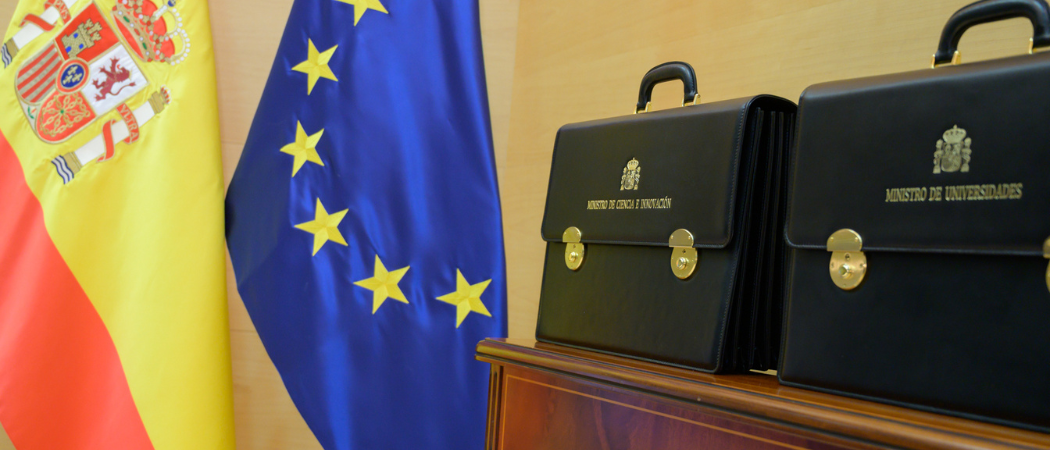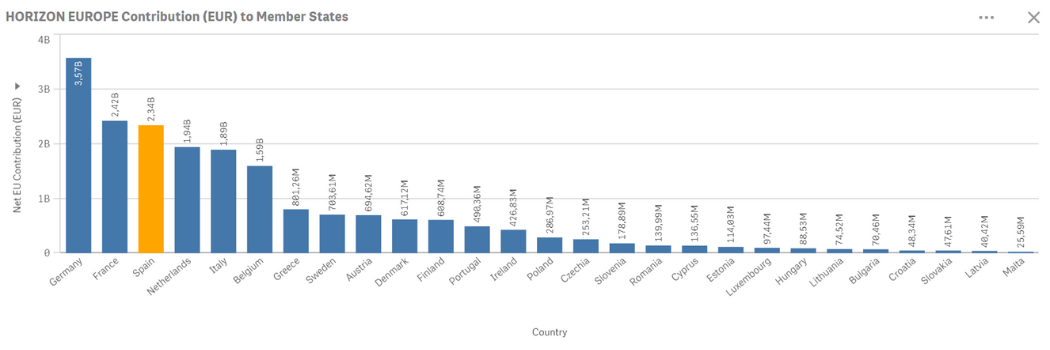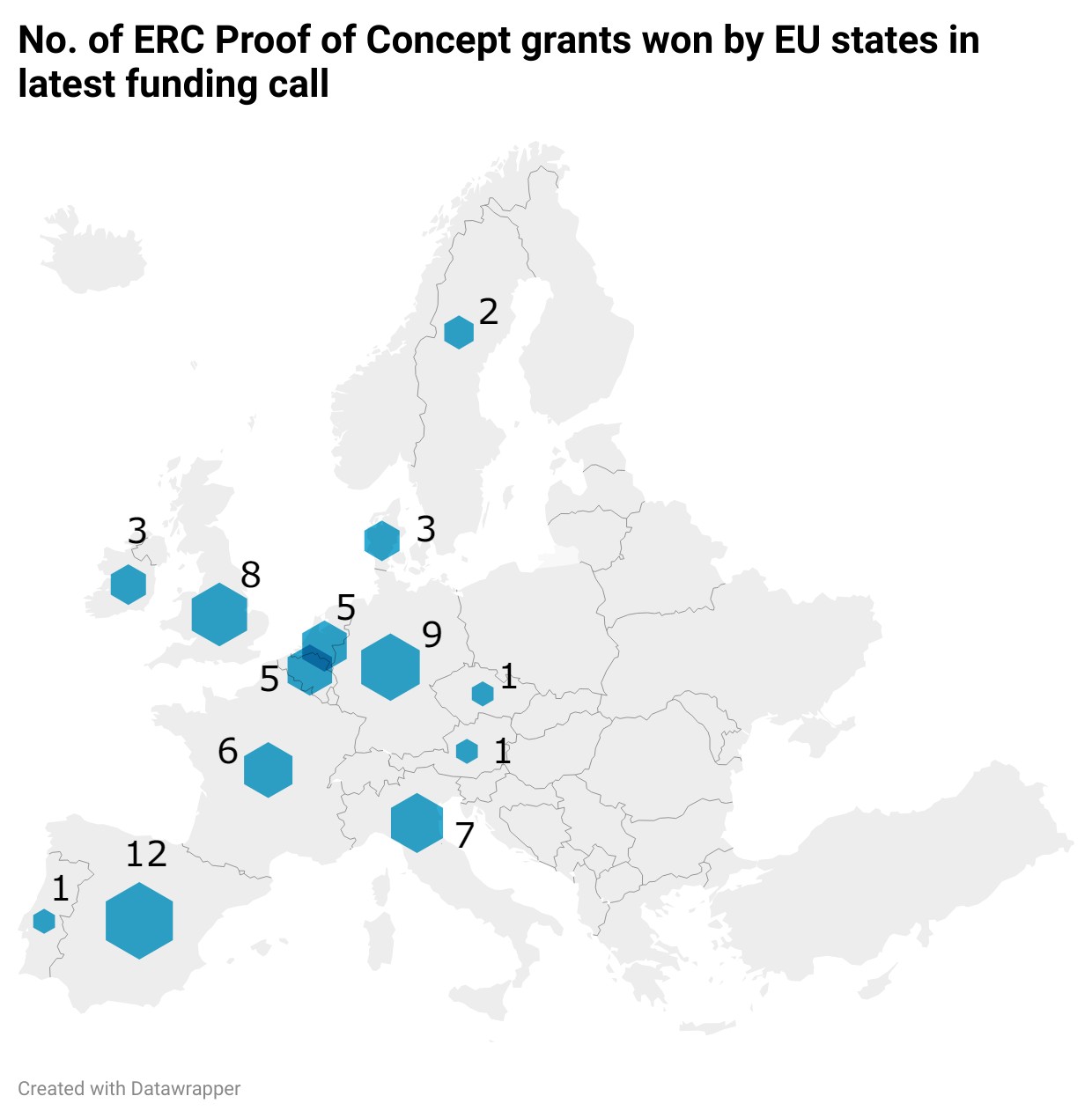In the latest call, researchers based in Spain won 12 of 66 grants awarded to shape up basic research for commercialisation. This is more evidence of a resurgence of Spanish science, which is now number three in the Horizon Europe funding table

Credit: Ministerio de Ciencia e Innovación / Flickr
Spain has been awarded the most grants in Europe in the European Research Council’s latest proof of concept funding round, picking up 12 grants out of the 66 in total.
Second placed Germany won nine grants and the UK and Italy won eight and seven respectively.
Spain’s 12 winners cover a range of topics, including treating metastatic cancer and next-generation vaccine development. Three of winners come from the Spanish National Research Council.
Proof of concept grants, worth €150,000, allow researchers to explore commercialisation prospects of basic research they carried out with an earlier ERC grant.
Spain also did well in an earlier round of proof of concept funding announced in May, picking up eight of 66 grants, fewer than only Germany and the UK. There will be one more round in 2023, with the ERC handing out a total of €30 million for the year.
The awards are a sign that Spanish science is bouncing back after huge cuts were made to the science budget following the financial crisis of 2008. In the past few years Spain has been making an effort to restructure and rebuild and has moved up to be the number three participating country in the EU’s €95.5 billion Horizon Europe research programme, securing €2.34 billion to date. Only Germany and France are ahead in absolute terms.

Spain-based researchers performed above average in securing proof of concept grants in this round. Of 183 applications, 66 will get funding, a success rate of 36%. Spain put forward 29 proposals with 12 accepted, a success rate of almost 42%.
The news was not so good for institutions in the EU Widening countries that have weaker research and innovation systems. Of the 15 countries, only Portugal and Czech Republic won a single grant each.
The Czechia-based winner is Michal Otyepka of Palacký University Olomouc whose project is on functionalised graphenes for ink technologies. Meanwhile Ana Rita Cruz Duarte of NOVA University of Lisbon’s project is on ways to improve the shelf life of perishable goods through the stabilisation of vitamins.






 A unique international forum for public research organisations and companies to connect their external engagement with strategic interests around their R&D system.
A unique international forum for public research organisations and companies to connect their external engagement with strategic interests around their R&D system.